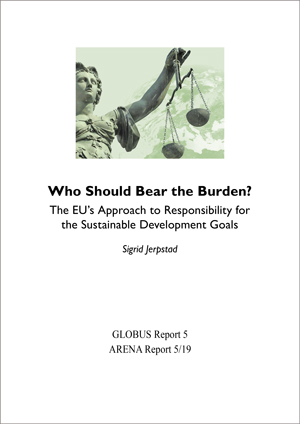In 2015, the UN member states agreed to 17 Sustainable Development Goals. The EU – which has a long history with sustainable development and ambitious goals in this field – participated actively in the negotiation process on behalf of its 28 member states. This report seeks to provide a richer understanding of the EU’s role in negotiating a global sustainable development agenda. It does so by analysing the EU’s approach to the question of responsibility for sustainable development. The allocation of burdens was a highly contested issue during this intergovernmental negotiation process.
The report finds that the EU promoted a universal responsibility-norm as a guiding principle for the new agenda, meaning that the shared responsibility of all countries for contemporary global challenges is emphasised. At the same time, the EU opposed principles promoted by many developing countries aimed at addressing liability for historical events. For the EU, the actors who contribute the most to injustice in the current international system should be assigned the most responsibility. It emphasised that the emerging economies in particular should recognise their moral obligation to increase their international commitments given their increasingly influential position.
For a printed copy (free of charge), please contact info@globus.uio.no


